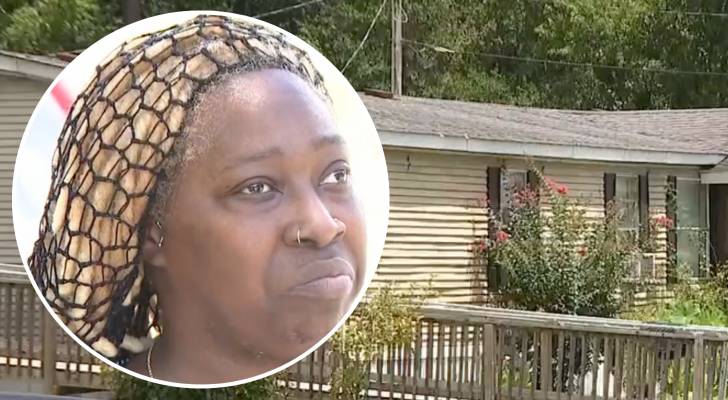
In South Carolina, approximately 50 families living in a mobile home park have no water after the landlord failed to pay a six-figure water bill.
The mayor of the town of Andrews told ABC News 4 that the owner of Black River Mobile Home Park, Tim Woodbridge, has failed to pay $155,268.81 in water bills over the last 19 months.
Some residents of the mobile home park say they’ve been paying their landlord for water bills, and that those payments have skyrocketed. According to the news report, the landlord had been texting amounts to residents, and did not provide any official water bills. One resident said the most he had paid the landlord for a water bill was $840, and other residents said they had paid similar high prices, with no discernible reason for the increase.
The mobile home park’s residents, many of whom are low-income individuals and people with disabilities, have been significantly affected by the escalating water bills. These financial burdens have created substantial hardship for this vulnerable community.
Don’t miss
- Thanks to Jeff Bezos, you can now become a landlord for as little as $100 — and no, you don’t have to deal with tenants or fix freezers. Here’s how
- I’m 49 years old and have nothing saved for retirement — what should I do? Don’t panic. Here are 6 of the easiest ways you can catch up (and fast)
- Robert Kiyosaki warns of a ‘Greater Depression’ coming to the US — with millions of Americans going poor. But he says these 2 ‘easy-money’ assets will bring in ‘great wealth’. How to get in now
Town says it has no choice but to cut off water
The mayor says the town had a meeting with Woodbridge in April, after Black River residents alerted the town that they hadn’t had water for up to eight weeks, after a sewage line broke.
The town says it cannot pay the outstanding water bill and has no choice but to cut off water for the residents.
According to another local news report, from Live 5 WCSC, the town is encouraging residents to file a breach of trust report with the Williamsburg County Sheriff’s Office. Residents may also be able to file claims under the South Carolina Residential Landlord Tenant Act. The Act states that landlords must maintain premises, make running water available and follow building and housing codes that affect health and safety. It also says that if a landlord fails to provide essential services, tenants may be able to recover damages and attorney’s fees.
Read more: Want an extra $1,300,000 when you retire? Dave Ramsey says this 7-step plan ‘works every single time’ to kill debt, get rich in America — and that ‘anyone’ can do it
What can tenants do to fight back?
If your landlord has failed to maintain your unit or provide essential services, such as sanitary plumbing, electricity, gas, running water and heat, there are actions you can take to protect yourself and your home.
In most jurisdictions, residential leases include an implied warranty of habitability — meaning landlords must comply with local housing codes.
Keeping records is the best way to protect yourself if you are dealing with an issue with your landlord. Inform your landlord in writing of any issues as soon as they arise, and keep copies of any notices or letters you send or receive. Document any phone calls or in-person discussions, including dates, times and matters discussed. If you are documenting phone calls, be sure it’s legal to record them in your state.
If you don’t pay your utilities directly, and your landlord collects payments from you, be sure that you request copies of the utility bills. Also, be sure to ask your landlord to provide receipts upon payment.
If, like the residents of Black River Mobile Home Park, you have reason to believe your landlord is not paying utility bills that you have submitted payment for, contact local law enforcement, and also seek help from local legal aid clinics or tenants’ rights groups.
What to read next
- You don’t have to be a millionaire to gain access to this $1B private real estate fund. In fact, you can get started with as little as $10 — here’s how
- Here are 5 ‘must have’ items that Americans (almost) always overpay for — and very quickly regret. How many are hurting you?
- Accredited investors can now buy into this $22 trillion asset class once reserved for elites – and become the landlord of Walmart, Whole Foods or Kroger without lifting a finger. Here’s how
- Rich, young Americans are ditching the stormy stock market — here are the alternative assets they’re banking on instead
Stay in the know. Join 200,000+ readers and get the best of Moneywise sent straight to your inbox every week for free. Subscribe now.
This article provides information only and should not be construed as advice. It is provided without warranty of any kind.